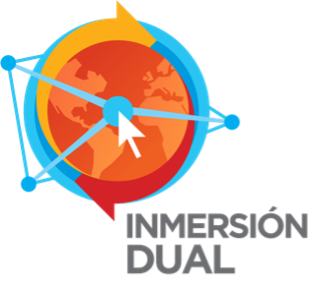The Virtual Dual Immersion Program (PIDV) began as a collaborative action of the Association of Universities Entrusted to the Society of Jesus in Latin America (AUSJAL) and the Association of Jesuit Colleges and Universities in the United States (AJCU) to facilitate language learning and the development of linguistic, communicative and intercultural competencies in their students.
Based on the principles of Ignatian pedagogy and the AIR methodology (Activation, Interaction, Reflection) in the design of the work sessions, the PIDV takes advantage of the potential of telecollaboration to facilitate the encounter between students and teachers who participate in this experience. The option for learning mediated by information and communication technologies (ICTs) has made this proposal an affordable alternative for university communities.
From 2006 to date, 29 universities, including AUSJAL and AJCU, have been part of PIDV. There has been collaboration between more than 35,000 students participating in conversation and exchange sessions and more than 250 teachers, who have worked together in the planning of the sessions.
Virtual Dual Immersion occurs when two native speakers collaborate in real time, online, through information and communication technologies, to help each other improve their linguistic, communicative and intercultural competencies by interacting with diverse topics from each other's worldview. It is the closest thing to field work, but pedagogically designed. This interaction means transforming two classes into one. It does not replace the face-to-face class, but complements it. The PIDV offers the following Exchange modalities: conversation sessions (Class-to-Class, Lab-Class, Autonomous, Lab-Virtual), webinars, socio-cultural contextualization and Collaborative Online International Learning (COIL).
The AIR model is an approach based on socio-constructivist, experiential and transformative learning theories (Ortiz, 2015; Cranton, 2016; Kolb, 1984; Vygotsky, 1978) as well as on the Ignatian pedagogy paradigm (International Commission, 1986; JSEA, 1993); which structures the planning and development of telecollaborative sessions. This model has been developed within the framework of the PIDV and is the pedagogical proposal on which the teacher is encouraged to design the exchange activities, so that they have a greater and better impact on student learning.
The PIDV exchange promotes, in addition to the aforementioned competencies, empathy and social justice and supports the Jesuit mission by globally connecting students and professors from their institutions. Universities that are part of the PIDV program have access to multiple training and mentoring materials. The overall coordination of the Program is attached to AUSJAL and collaborates with local coordinators at each participating university, both in the United States and in Latin American countries.
For more information, please contact the general coordination of the IPDP. Through the following e-mail [email protected]

